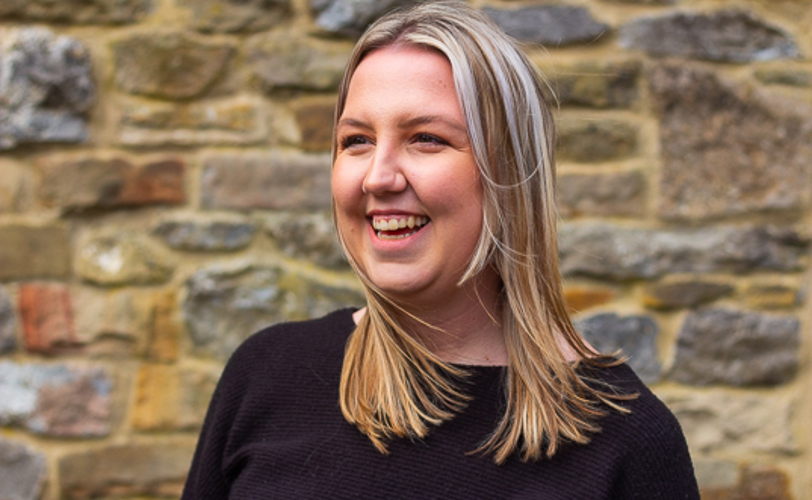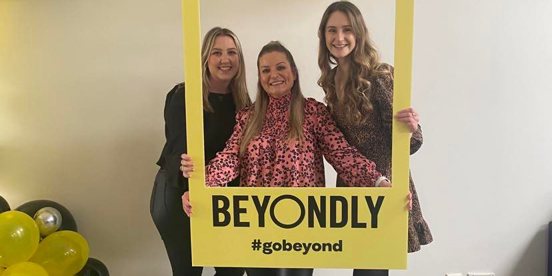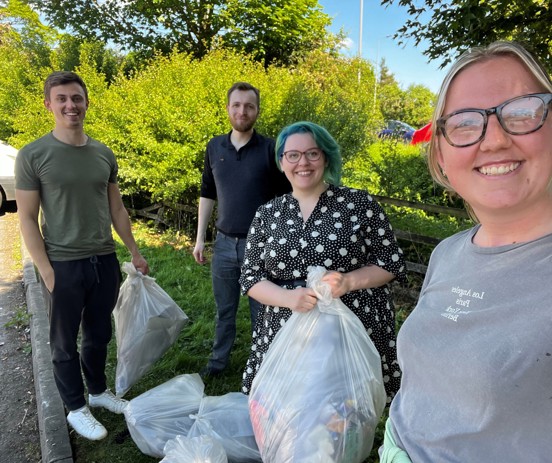

Talent & Culture Manager
Qualifications:
- BA(Hons) Degree in Business and Management
- Post-Graduate Diploma in Law
- Working towards CIPD Level 5 in People Management
When I joined Beyondly, I had an interest in HR from my degree and law diploma, therefore I mentioned this to my line manager as an area for development. As well as this, I also chose the Talent and Culture Coordinator at the time, as my peer mentor when I started in my role. We discussed how she had approached her development in becoming a member of the HR team from joining as an admin assistant.
After my first six months with the company, I set up a meeting with my mentor to learn more about what the day-to-day role looked like at Beyondly in the HR team to see if this was for me. We discussed carrying out a personal SWOT analysis on the Chartered Institute of Personnel and Development CIPD profession map. This helped me to identify any development areas I could work on which would put me in good standing for a position in the Talent and Culture team if it arose.
Since joining the company, I have always volunteered for any additional activities that would increase my exposure to different areas of the business. When a member of the Talent & Culture team was on a sabbatical, I put myself forward to support with any responsibilities in the team. When I moved to the Talent and Culture Administrator, my line manager and I put together an induction plan to work through to ensure I was fully trained and comfortable with all elements of the role. In my move to Talent and Culture Coordinator, my manager and I set goals each quarter to continue with my personal development, including having difficult conversations, shadowing and holding interviews with candidates and rolling out a new and improved mentor scheme.
Since then, I have been promoted to Talent and Culture Manager, where this exposure and shadowing have been invaluable in supporting my learning and development to take on these responsibilities myself. Outside of Talent & Culture, I still take the opportunities to learn from others in the business in various roles, as well as from others in HR networks to learn from others and share best practices, all contributing to my continued professional development.
- Communication – Before I moved into my current role, I sometimes struggled with having uncomfortable discussions and providing constructive feedback, especially when it came to unsuccessful recruitment candidates. To improve, I sought feedback from my line manager and dedicated time to practicing my writing skills for these situations. I also asked a colleague to review my wording to ensure they were clear and accurately understood. This process allowed me to rephrase my feedback to make it more effective and insightful. Now, I feel confident in expressing my thoughts constructively to achieve the best impact.
- Trust in my abilities – I’m still working on this, but I think the more I’ve developed the more I’ve learned to trust my instincts and my abilities – I do know what I’m doing! Having trust has helped me to develop confidence in my role in decision-making, especially when I’m asked a question on the spot. It has also helped me to be confident in making suggestions for others and providing solutions to problems.
- Resilience – in your professional career you can sometimes get feedback that you weren’t expecting, or a difficult situation is thrown your way that, on reflection, may not have been handled to the best of your ability. In developing resilience I’ve been able to pick myself up and reflect on how things could have gone differently to learn for the future. This has helped me be much more positive in these situations as well as develop my confidence to be able to handle things better next time.
Getting out of my comfort zone has helped me to develop a lot of my skills today; things never go as badly as you expect them to in your head! By putting yourself out there is sometimes uncomfortable or unnatural, you’ll learn more about yourself and your skills and abilities but also develop your capabilities more than you expect.
Handling a busy workload has helped me learn how to prioritise and focus, but has also taught me that sometimes you can’t do everything! I am a little bit of a control freak who likes to have everything in order and to be able to do it all, but sometimes that’s not possible – take a step back and look at what you can control and work from there. This has also developed my appreciation for other people’s abilities, and to better understand everyone in the business’ skillsets. This is great as you then know who to approach for advice on how to handle a task in the future!
Expose yourself to new things and take any opportunity presented to you – you never know where you might develop a new interest or passion! This might be sitting near other teams in the office to listen to what they’re working on, asking to shadow roles or meeting with a mentor to understand their career development.
Be inquisitive – by asking questions, you’ll be exposing yourself to learning new knowledge or skills and may even help others and yourself to think of things from a different perspective and to think of solutions.
Ask for feedback – positive feedback highlights your strengths and what you do well. Use constructive feedback as an opportunity to highlight areas you can develop in, to be an even better version of yourself.
Do what you love – if you’re unsure of where you want your career to go, take a step back and think about what you enjoy. We spend an average of over 3,500 full days at work in our lifetime, so it’s important that you enjoy and are passionate about what you do!




Find out where to start
0% Complete!


